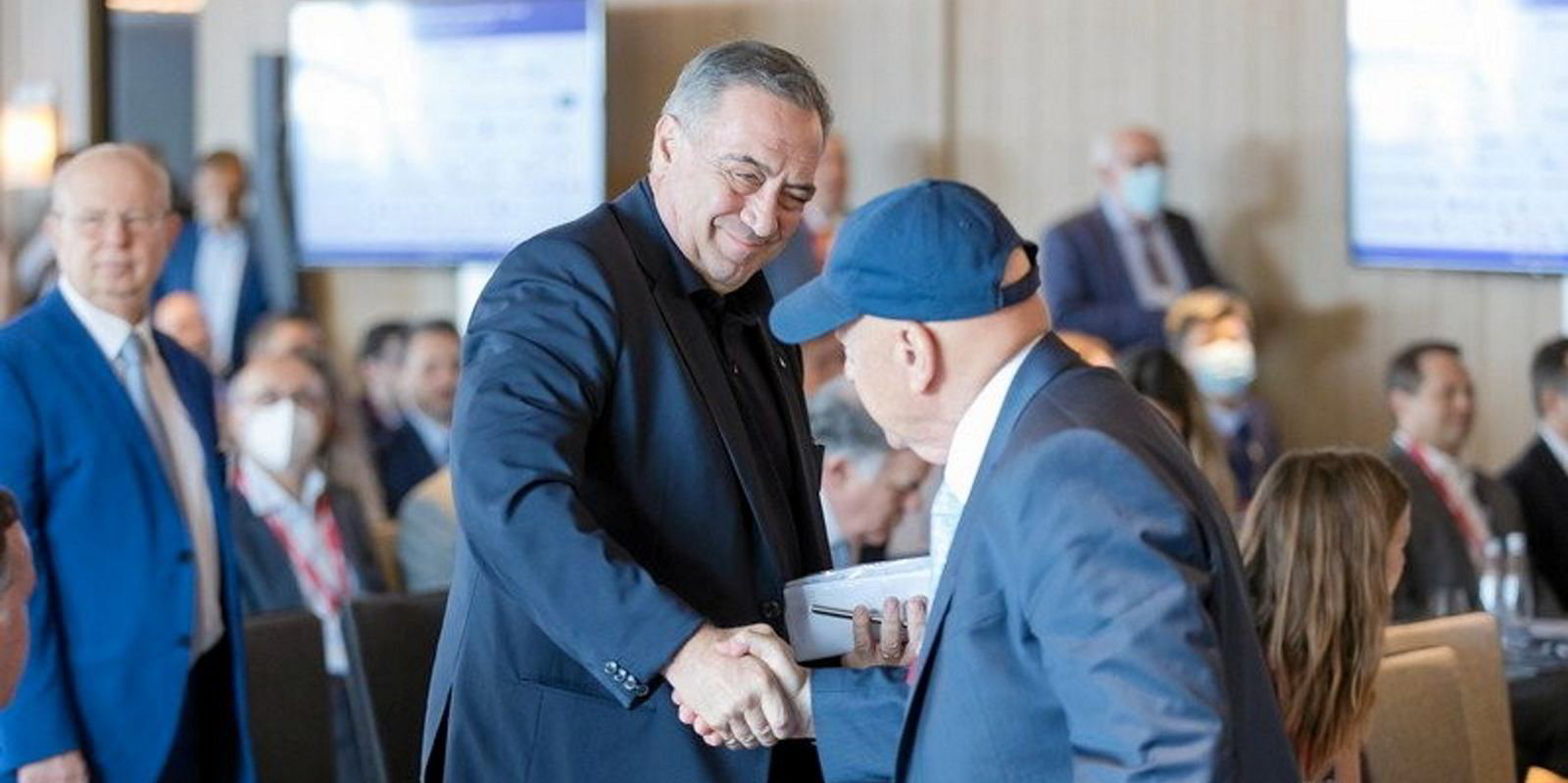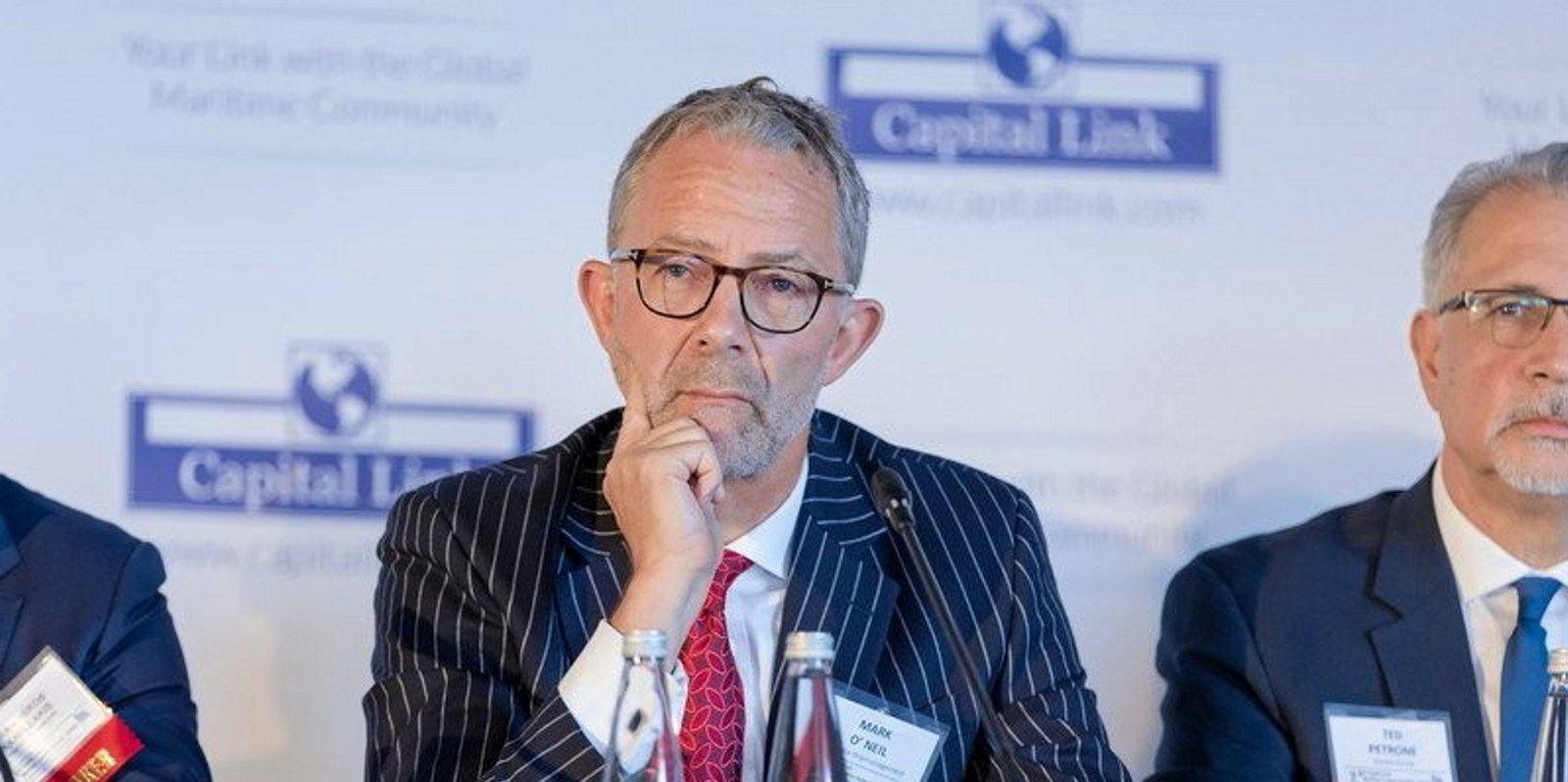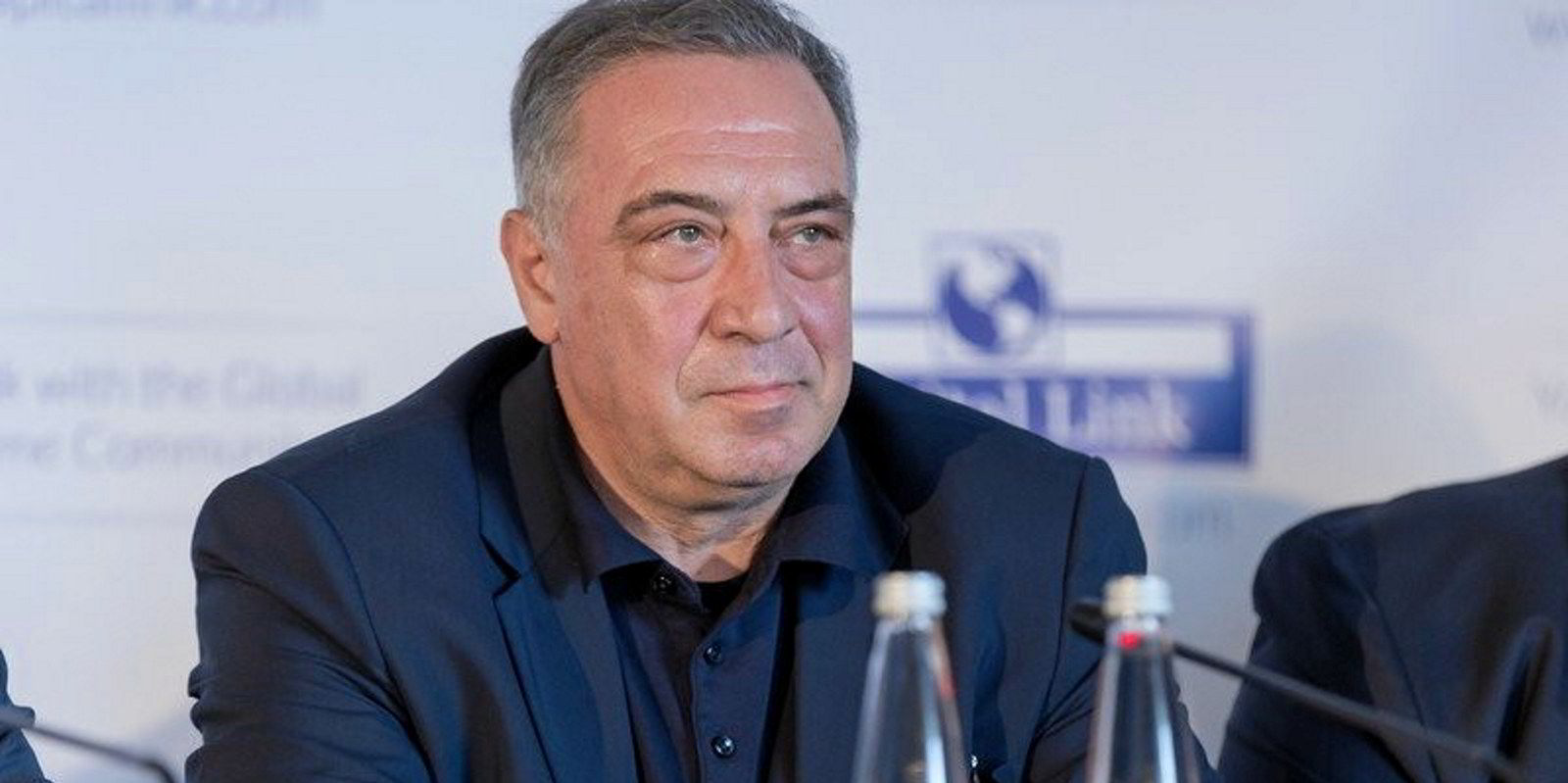Tsakos Energy Navigation (TEN), an owner of more than 50 tankers and LNG carriers on the water, posted yet another record quarterly profit, backed by robust markets and the lucrative sale of eight of its product carriers.
The New York-listed company, which will celebrate its 30th year as a public company in October, said net income reached $177m in the first three months of the year, compared with a mere $5.5m profit in the same period of 2022.
This is the second consecutive quarter that TEN has posted a record profit, following $101.1m in net income the fourth quarter of 2022.
“We’re in a period I have never experienced in my 30 years of working life,” chief executive officer Nikolas Tsakos told analysts in a conference call to discuss the company’s earnings.
From recovering oil demand to an unusually low orderbook to longer tonne-miles to drought delays in the Panama Canal, everything seems to be conspiring to drive the market higher, according to the Greek owner.
“The market is so [finely] balanced that every small detail makes it even stronger,” Tsakos said.
TEN said it was able to capture that upside potential through its “flexible charters with upside potential”, which led to nearly $41,900 per day in time charter equivalent (TCE) earnings, a twofold increase on the same period of last year.
That in turn boosted revenue to $261m — up 74% from a year earlier but slightly below the $270.3m the company had posted in the fourth quarter of 2022.
Other factors drove profitability even higher, as the company pocketed an $81m gain from the sale of six of its MRs and two handysize carriers in deals that TradeWinds has already reported.
Company managers displayed optimism going forward.
“We believe this market has legs going forward,” Tsakos said.
Greece-based TEN expects that some of the beneficial trends currently prevailing in the market, notably the change in trade flows as a result of western sanctions on Russian oil, are here to stay.
“As the war in Ukraine continues, these changes appear to be permanent,” TEN’s chief operating officer George Saroglou said.
TEN announced on Tuesday having secured new charters and charter extensions for 15 of its vessels over the past three moths, including for two of its three LNG carriers.
These deals will contribute more than $500m in earnings going forward, according to management.
TEN’s 150,000-cbm LNG carrier Neo Energy (built 2007) in particular “has been chartered with a very healthy six-figure number”, Tsakos said.
Preferred shares redeemed
Higher cash inflows allow TEN to replace expensive capital.
The company announced on Tuesday that it was redeeming one of its three sets of preferred shares.
TEN called for redemption of all its 3.52m Series D preferred shares at $25.24 each.
These shares, which represent a perpetual equity interest in the company and are not convertible into common shares or other TEN securities, generate an annual dividend of 8.75% and redeeming them will create $7.7m in annual dividend savings.
“This is good housekeeping for us, it makes our balance sheet simpler,” Tsakos explained.
Nikolas Tsakos and his father and Tsakos Group founder Panagiotis Tsakos own 8.8% of these shares.
Entities controlled by the Tsakos family also own about 38% of TEN’s common shares, according to the company’s last annual filing in April.
Fellow Greek shipowner Konstantinos “Costis” Konstantakopoulos of Costamare was owning 8.3% of TEN last year. TEN’s latest annual filing, however, features Konstantakopoulos no longer among the company’s major shareholders.
Even though TEN has been uninterruptedly paying dividends and has had no debt restructurings throughout its history, it has found it hard to become more popular with shareholders.
Even after Tuesday's record results, TEN stock in New York was affected by a bad day for all tanker companies, trading down 2.3% to $17.24 per share.
This gives the company a market capitalisation of $509m, which is far below the $2.57bn it estimates its vessels were worth at the end of March.
Company management said on Tuesday it will consider paying an extraordinary dividend later this year, on top the semi-annual $0.60 per share it has already announced earlier this year.
Deciding on the extra dividend will be “a judgement call, there are no triggers… or formulas or whatever”, the company’s board chairman Takis Arapoglou said.
“We really need to be convinced that what we see as being a sustainable performance really materialises,” Arapoglou added.





